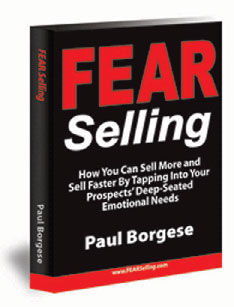 |
|||||
|
Home ●
How to choose an agent ●
Discussion
forum ●
About
me
Unethical practices that affect
buyers:
1 ●
3 ●
4 ●
5 ●
6 ●
7 ●
8 ●
9 ●
10
|
|||||
|
Unethical Practice #6:
Agents who withhold useful information.
Poor training As Douglas Gantenbein points out in a Slate article, "A realtor's license can be had after as little as 50 or 60 hours of training (the person who cuts your hair probably has 1,000 hours or more)." In California, for example, all one needs to get licensed is a high school diploma, a few courses (which can be taken online with open-book tests), and a passing grade on an easy multiple-choice test. For those who find the test too challenging, many of the exam's more frequently asked questions can be purchased online--along with the answers. After receiving a license, many agents take a brief ethics course in order to become a REALTOR. I've taken this course twice and both times the instructors went over the answers to the true/false exam before we filled in our answer sheets. After they become Realtors, agents can take seminars and courses through their local Realtor associations. The focus of these courses is usually on marketing--though not, as one might hope, on marketing homes. The California Association of Realtors 2009 Expo, for example, offered separate sessions on:
Other sessions didn't strive to build expertise so much as teach agents how to package the expertise of others. One session, for example, explained "how to collaborate with a professional stager" (paid for by the seller) "in order to get more listings and create a long-lasting referral network." Another talked about how to price homes using an online service, Clarus MarketMetrics®--noting that the firm's marketing reports are "invaluable as a prospecting tool." There were no sessions on negotiating techniques, identifying problems with homes, real estate tax laws, building code trends, zoning issues, new appraisal guidelines, lending restrictions on condos, arbitration, or photography. There was one course on risk management, but it was about managing the agent's risk, not the client's: "You work hard to earn your commission – attend Bill Jansen’s session to learn valuable risk management tools that you can use today to avoid claims and keep the money you earn."
Agents aren't paid for giving advice; they're paid for selling homes--and good advice, unfortunately, often gets in the way of selling homes. If a buyer wants to make an offer on a home, the agent might know that the city plans to build a halfway house down the street, or that a foreclosed home is about to come on the market nearby, or that the material wrapped around the heating pipes looks like asbestos, or that the buyer's plan to borrow against her current home to finance the purchase won't convey many tax advantages, or that the pool's diving board will boost insurance rates, or that the "historical district" zoning will make remodeling costly. But pointing out these things could jeopardize the sale--and the agent's commission. Agents
therefore have an incentive to know as little as possible about
potential nuisances and problems with homes. If they know of a
problem and tell the buyer about it, they could lose the sale.
If they know and don't tell, they could get sued. Agents' advice Instead of offering their own advice, agents often advise clients to get advice from others. While purchasing a home, for example, buyers are usually asked to sign agent advisories recommending that they consult with an attorney, a tax advisor, a home inspector, a pest inspector, a chimney specialist, a plumber, an electrician, a roofer, a pool and spa service, an environmental hygienist, a licensed surveyor, a civil engineer to check for soil stability, a qualified sanitation professional if there's a cesspool, a well company if there's a well, the local building department, the local fire department, an insurance professional, the Homeowners Association, local schools, various city and county and state government agencies, the US Consumer Product Safety Commission, and a environmental hazards specialist to check for mold, lead contamination, asbestos, radon, methane, urea, formaldehyde, hazardous waste, electromagnetic fields, and other problems that the home and pest inspectors aren't qualified to detect. While buyers generally do hire home and pest inspectors, they otherwise tend to scrimp on professional advice--sometimes to their detriment. In California, for example, a large number of married couples elect to hold title as joint tenants with right of survivorship, a foolish and potentially costly choice for the vast majority of them. Were they to have consulted with an attorney, it's likely that most would have elected to hold their property either as community property or community property with right of survivorship. I'm not suggesting that agents attempt to replace specialists, but they could be more helpful. Home inspectors, for example, aren't usually qualified to identify chimney problems or mold, but they'll often tell buyers things like, "That chimney's got a pretty serious crack--you may want to bring in a chimney inspector" or "You might want to get that mold-like substance checked out." If agents were to point out serious problems early in the process, they could save their buyers time and money. By the time the home inspector arrives to point out the home's defects, a typical buyer has put at least $1,500 into a loan application, appraisal, and inspection fees, and has exulted about the home to family and friends. At that point, many buyers shrug off any problems with their homes and go ahead with their purchases without price adjustments.
_____________________________________________________
Things you ought to know that your agent might not tell you
_____________________________________________________ Are agents professionals or salespeople?
|
|||||
|
©Lori Alden, 2010. All rights reserved. |
|||||

